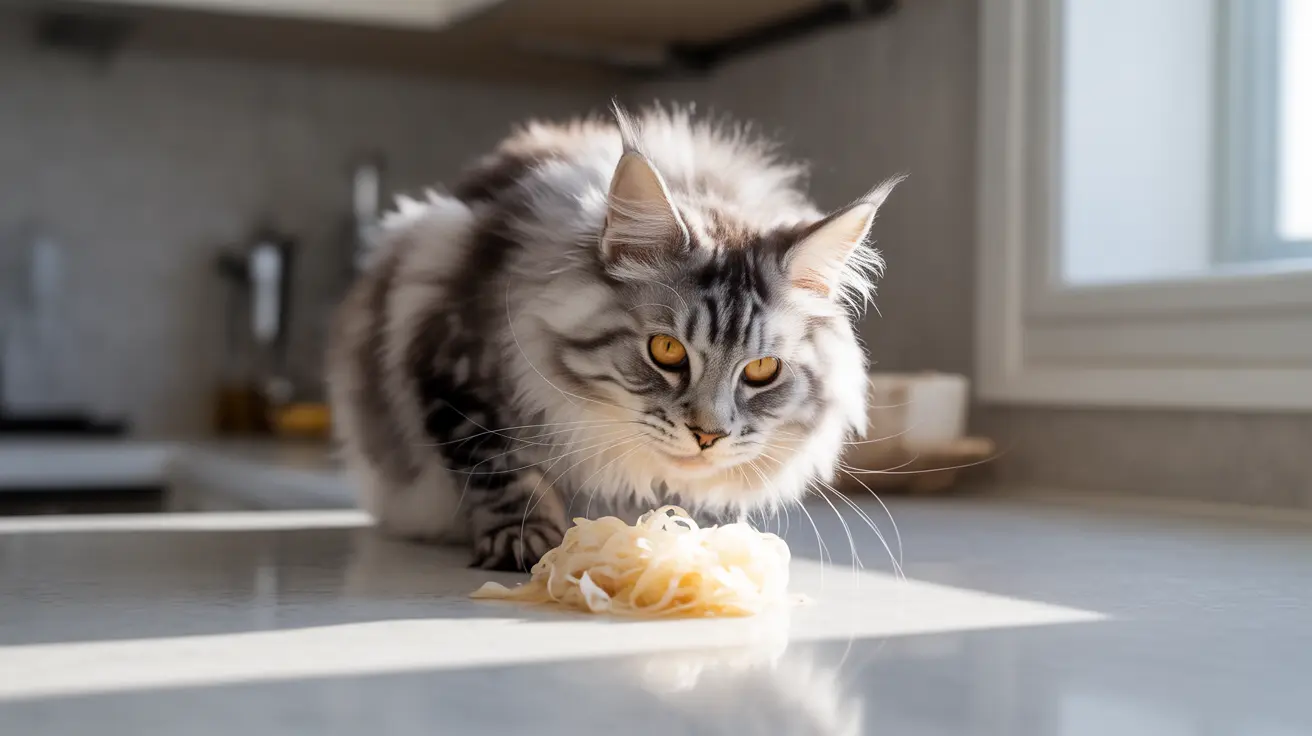Introduction
If you're a cat owner who enjoys sauerkraut, you might wonder if sharing this fermented cabbage dish with your feline friend is safe. While sauerkraut isn't toxic to cats, the relationship between cats and this popular fermented food is complex and requires careful consideration. This comprehensive guide will explore everything you need to know about cats and sauerkraut, including safety considerations, potential benefits, and important risks to keep in mind.
Understanding Sauerkraut and Its Components
Sauerkraut is fermented cabbage created through a natural process involving salt and beneficial bacteria. While it's packed with nutrients like vitamin C, vitamin K, and probiotics that benefit humans, these properties don't necessarily translate to benefits for our feline companions.
- Beneficial probiotics
- Various B vitamins
- Minerals like iron and potassium
- Naturally occurring compounds from fermentation
Why Cats and Sauerkraut Don't Mix Well
Cats are obligate carnivores, meaning their bodies are designed to process and utilize nutrients primarily from animal-based proteins. Their digestive systems aren't equipped to handle fermented vegetables like sauerkraut effectively. This fundamental biological fact makes sauerkraut an unnecessary addition to their diet.
Potential Risks of Feeding Sauerkraut to Cats
High Sodium Content
Commercial sauerkraut typically contains high levels of salt, which can be dangerous for cats. Excessive sodium intake can lead to:
- Dehydration
- Increased blood pressure
- Kidney stress
- Potential salt poisoning in severe cases
Digestive Issues
The acidic nature and fiber content of sauerkraut can cause:
- Stomach upset
- Diarrhea
- Vomiting
- General digestive discomfort
Safe Serving Guidelines (If You Must)
If you still want to offer sauerkraut to your cat, follow these strict guidelines:
- Use only plain, unseasoned sauerkraut
- Limit portion size to no more than 1/4 teaspoon
- Monitor your cat closely for adverse reactions
- Only offer it occasionally as a treat
- Ensure the sauerkraut contains no harmful additives
Better Alternatives for Cat Health
Instead of sauerkraut, consider these veterinarian-approved options for supporting your cat's health:
- Commercial probiotic supplements designed for cats
- Vet-recommended digestive health foods
- Species-appropriate treats
- Fresh, clean water for hydration
Frequently Asked Questions
Can cats safely eat sauerkraut, and what are the risks involved?
While cats can technically eat plain sauerkraut in very small amounts, it's not recommended. The main risks include high sodium content, digestive upset, and potential exposure to harmful additives or seasonings.
How much sauerkraut is safe to give my cat as a treat?
If offering sauerkraut, limit it to no more than 1/4 teaspoon as an occasional treat. However, it's better to avoid it altogether and choose cat-specific treats instead.
Are there any health benefits of feeding sauerkraut to cats?
While sauerkraut contains probiotics and vitamins, cats don't process these nutrients from plant sources effectively. Any potential benefits are better obtained through cat-specific supplements or foods.
What ingredients in sauerkraut should cat owners avoid to prevent toxicity?
Avoid sauerkraut containing garlic, onions, excessive salt, spices, or preservatives. These ingredients can be toxic or harmful to cats even in small amounts.
How should I introduce sauerkraut to my cat's diet without causing digestive issues?
If you choose to offer sauerkraut, start with a tiny amount (less than 1/4 teaspoon) and monitor your cat for any adverse reactions. However, it's generally better to avoid introducing it altogether.
Conclusion
While cats can technically eat small amounts of plain sauerkraut, there's no compelling reason to include it in their diet. The potential risks outweigh any minimal benefits, and there are far better ways to support your cat's health through proper nutrition and vet-approved supplements. Focus instead on providing your cat with a balanced, species-appropriate diet that meets their natural nutritional needs.






